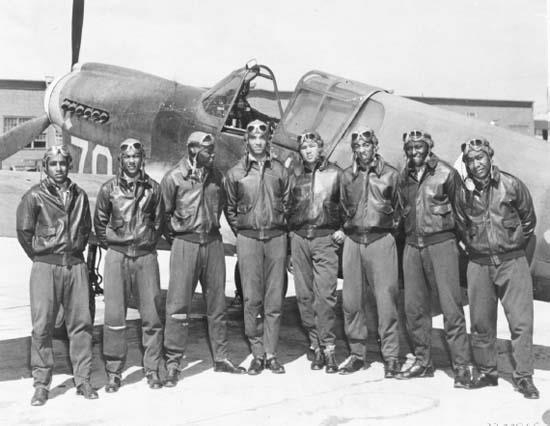MilitaryFrom the American Revolution to the Spanish-American War |
What was the “Tuskegee Experiment” and who were the Tuskegee Airmen? |
The 100th Squadron of four fighter squadrons comprising solely of black men was activated on October 13, 1942, at the Tuskegee Army Air Field in Alabama; it was the first black American military aviation group. Later three other black fighter squadrons were combined and became known as the Tuskegee Airmen. By the end of the year, the 99th Pursuit Squadron, the first black air unit in the history of the United States, was ready for action. The 99th was sent to North Africa and on June 2, 1943, they flew their first combat mission against the island of Pantelleria. About six hundred black pilots received their wings during World War II. The Tuskegee Experiment proved that black men could fly state-of-the-art aircraft and could conduct highly successful combat operations.
Increasingly, the Tuskegee Airmen have received public acclaim. In April 2007 President George W. Bush awarded the legendary airmen the Congressional Gold Medal, the highest honor Congress can award to civilians. President Bush told the men, “You helped win a war, and you helped change our nation for the better.” He continued, “And the medal that we confer today means that we are doing a small part to ensure that your story is told and honored for generations to come.” Public Law 105-355, which President Bill Clinton approved on November 6, 1998, established the Tuskegee Airmen National Historic Site at Moton Field in Tuskegee, Alabama. In 1996 an HBO movie titled Tuskegee Airmen, starring Laurence Fishburne, was released, followed by a movie Red Tails, in 2012, which also told the story of the legendary airmen. The airmen’s brand is seen on hats, shirts, jackets, and other paraphernalia that honor the iconic black units.

The Tuskegee Airmen fought bravely during World War II in the European theater. In 2007, the 99th Pursuit Squadron received the Congressional Gold Medal from President George W. Bush.
